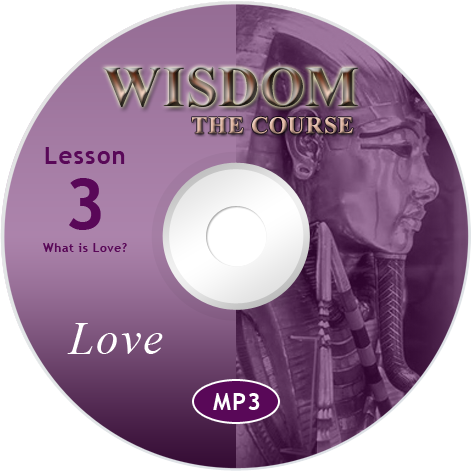
Page Screens of Module Three.
In the same way that enlightenment is most effectively explained by two dimensions, love, one of the most fundamental and important resources that we have, is also best explained by at least two, three, or perhaps even more different types or definitions. Indeed, the two main different concepts of love that we shall discuss here correlate very closely to Horizontal and Vertical Enlightenment respectively, because love, like enlightenment, is also about consciousness. They’re not quite identical but they’re very close.
By discussing them additionally as concepts of love, though, we’ll also have the opportunity to strengthen and sharpen those areas of our current thinking which might not otherwise occur by thinking of the attributes of our consciousness and positive thinking only in terms of enlightenment, or wisdom. When we can think in terms of love consciousness power – and in each and every moment – with that understanding we can really begin to take control of our consciousness, and of each aspect of our lives.
 Understanding and harnessing love is one of the most important and effective things we humans can do for a happy, prosperous and successful life, yet its understanding is almost exclusively left to chance by all, and this omission is something which we will address.
Understanding and harnessing love is one of the most important and effective things we humans can do for a happy, prosperous and successful life, yet its understanding is almost exclusively left to chance by all, and this omission is something which we will address.
Within this Module we’ll also address the concept of giving oneself the gift of unconditional love, plus a whole range of other issues and concepts besides, which are all closely interrelated one way or another. These include the topics of stress, judgement and judgementalism, acceptance, gratitude, effortlessness, neediness and self-worth, and the elusive, golden quality of self that many wish for of living in the flow – something which many of us experience from time to time, but have no idea how we lost it, how and why it arrives, and how we can get it back when it’s gone.
“The need to be slim keeps one from flowing with the natural process of weight management. The need to be wealthy keeps one from flowing with the natural process of right contribution, reward, and rest. The need to be loved fills the space which could otherwise be filled with love.” – James Blacker, taken from Wisdom The Course
With the important, key issue of stress, understanding love is particularly essential as it is non-love which is ultimately at the heart of almost any experience of stress, for there is a difference between stress and hard or even extreme work, and this will be fully explained, too. Stress is largely an incongruence of direction within the individual.
…and this also applies to the domestic environment as well as the work environment, too…
“Without Fear there is no stress. Stress is the resistance of The Ego. By definition, for stress to occur, at least two forces must be acting upon an object – for our purposes, a human being. If two or more forces act upon a human being, he or she experiences stress.” – James Blacker, taken from Wisdom The Course
The Main Subject Headings of Module Three…
The following are the main subject headings of Module Three: What is Love?.
-
- 42 Words for Love? Let’s Start with Three
- Three Notions of Love: 1. Attraction or Desire
- Three Notions of Love: 2. Love as Love Consciousness
- What is Love Consciousness?
- Three Notions of Love: 3. Love as Care or Compassion
- Skill 6. Unconditional Love and Acceptance
- Further Characteristics of Love
- Fear: Love Consciousness and Fear Consciousness
- Power as Distinct from Force
- Stress
- Self-Worth
- Fear Affects Humans – ALL Humans
- Skill 7: The Mastery of Love
- The Track of Love, The Track of Fear
- Written and Observational Exercises
- Test Yourself Questions
Smaller, subject sub-headings in this Module include; Judgement, Judgmentalism and internal dissatisfaction, Neediness, Love never hurts, The two types of fear, Self-Seeking, Submitting to Fear is counter-productive, The Power of Love, Attachment and Resistance, Responding as distinct from Reacting, Manufacturing v’s Uncovering and Living in The Flow.
Audio MP3s Offer
Wisdom The Course now comes with a special offer of 20 Bonus Audio MP3s – one to accompany each Module.
These audios were created in 2013 by recording ‘in-class’ course modules with an online student, and are included with the Course.
Audio MP3 to accompany Module Three (visual representation)

